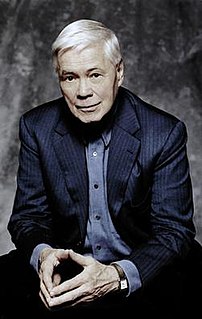A Quote by Randall Jarrell
Modern" poetry is, essentially, an extension of romanticism; it is what romantic poetry wishes or finds it necessary to become. It is the end product of romanticism, all past and no future; it is impossible to go further by any extrapolation of the process by which we have arrived, and certainly it is impossible to remain where we are who could endure a century of transition ?
Related Quotes
Imagism was a reductio ad absurdum of one or two tendencies of romanticism, such a beautifully and finally absurd one that it is hard to believe it existed as anything but a logical construction; and what imagist found it possible to go on writing imagist poetry? A number of poets have stopped writing entirely; others, like recurring decimals, repeat the novelties they commeced with, each time less valuably than before. And there are surrealist poetry, and political poetry, and all the othe refuges of the indigent.
Cultural criticism finds itself faced with the final stage of the dialectic of culture and barbarism. To write poetry after Auschwitz is barbaric. And this corrodes even the knowledge of why it has become impossible to write poetry today. Absolute reification, which presupposed intellectual progress as one of its elements, is now preparing to absorb the mind entirely. Critical intelligence cannot be equal to this challenge as long as it confines itself to self-satisfied contemplation.
After Pope, in the beginning of Romanticism, people developed the idea that imagination rather than reason was a special form of knowledge and its best expression is through poetry. Therefore, poetry should not try to do the stuff that mere prose does: convey information or make arguments about ideas.
What the world wants, what the world is waiting for, is not Modern Poetry or Classical Poetry or Neo-Classical Poetry - but Good Poetry. And the dreadful disreputable doubt, which stirs in my own skeptical mind, is doubt about whether it would really matter much what style a poet chose to write in, in any period, as long as he wrote Good poetry.
Perhaps you don't desire poetry as much as you would like to have my torchy knowledge of your possible futures, but I dare say poetry will do you far more good. For knowing the future only makes you timid and complacent by turns, while poetry can shape you into the kind of souls who can face any future with boldness and wisdom and nobility, so that you need not know the future at all, so that any future will be an opportunity for greatness, if you have greatness in you.






































